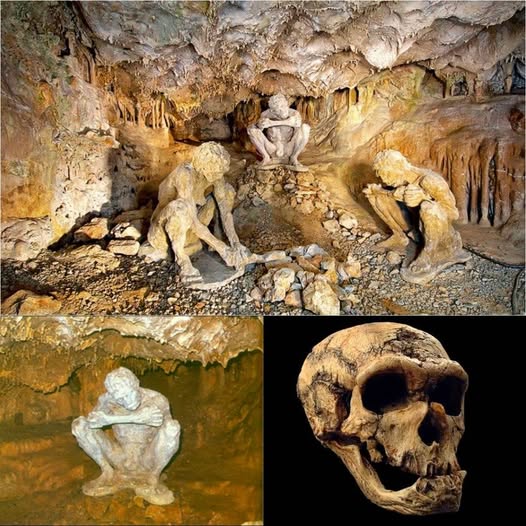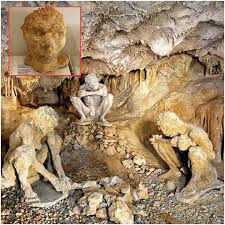Rewriting Human Origins: 700,000-Year-Old Skull Found in Greek Cave Challenges “Out of Africa” Theory

Could everything we thought we knew about human evolution be wrong? Recent discoveries deep within a Greek cave have unveiled a remarkable 700,000-year-old human skull that defies the established timeline and geographic expectations of our species’ development. This astonishing find raises profound questions about the long-held “Out of Africa” theory, which posits that modern humans originated in Africa before migrating to other parts of the world. The implications of this discovery could fundamentally alter our understanding of human origins.

The skull, remarkably well-preserved, exhibits features that suggest it belongs to an early human ancestor, yet its age and location challenge previously accepted narratives. Archaeologists are now faced with the intriguing possibility that early humans may have inhabited Europe much earlier than previously believed. This revelation prompts a reevaluation of migration patterns and interactions between early human populations across continents.
Who was this ancient human? Researchers are eager to uncover the identity and lifestyle of this individual. Was this skull representative of a distinct population that thrived in Europe, or was it part of a broader migration that connected different regions of the world? The answers to these questions could provide insight into the adaptability and resilience of early humans as they navigated diverse environments.

As scientists scramble to decode the mystery surrounding this skull, the potential to upend the very foundation of our origin story becomes increasingly apparent. The implications of this discovery extend beyond mere chronology; they challenge the assumptions about the linearity of human evolution and the ways in which different populations interacted. If early humans were indeed in Europe 700,000 years ago, it opens the door to countless questions about their culture, social structures, and survival strategies.
Moreover, this find encourages a more nuanced view of human evolution, suggesting a complex web of migrations and adaptations rather than a straightforward path originating solely from Africa. The cave in Greece may hold further secrets, urging researchers to explore its depths in search of additional fossils and artifacts that could illuminate our understanding of human history.

In conclusion, the discovery of this 700,000-year-old skull in a Greek cave is not just an extraordinary archaeological find; it is a catalyst for reevaluating the narrative of human evolution. As researchers delve deeper into the implications of this skull, we are reminded of the complexity of our origins and the mysteries that still await discovery. This remarkable find invites us to reconsider the fabric of our shared past and the intricate journey of humanity across the ages. The story of our origins is far from complete, and the echoes of ancient lives continue to resonate within the earth.